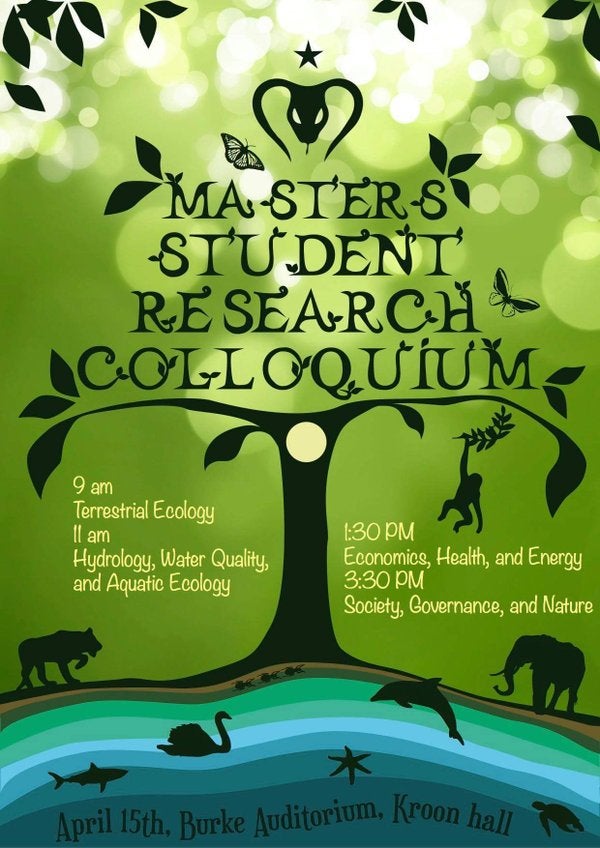Note: Yale School of the Environment (YSE) was formerly known as the Yale School of Forestry & Environmental Studies (F&ES). News articles and events posted prior to July 1, 2020 refer to the School's name at that time.

F&ES students will present original research at the annual Masters Student Research Colloquium in Burke Auditorium on Friday, April 15. The program will feature 27 presentations by Master of Environmental Science and Master of Forest Science students on topics ranging from flower-bee interactions at Yale Myers Forest, to air pollution and wildfires in Alaska, to climate change communication strategies in Argentina.
In order to be accepted into the research-oriented degree programs, students must propose a research topic to a specific F&ES professor who agrees to work with them. They then design a project and carry out independent fieldwork during the summer between their first and second year. This past summer, students conducted research at field sites as close as New Haven and as far away as Ghana, Indonesia, and Peru. Their fieldwork must culminate in a master’s thesis in the form of a major paper suitable for publication in a peer-reviewed journal or as a chapter in an edited book. Many students use their thesis as the basis for a Ph.D. dissertation proposal.
This year’s colloquium features four sessions that reflect the diversity of interests by the F&ES student body: terrestrial ecology; hydrology, water quality, and aquatic ecology; economics, health, and energy; and society, governance, and nature. The daylong program opens with a welcome by Prof. James Saiers, Associate Dean for Academic Affairs, and will conclude with a special reception and awards ceremony Kroon Hall 3rd Floor.
In order to be accepted into the research-oriented degree programs, students must propose a research topic to a specific F&ES professor who agrees to work with them. They then design a project and carry out independent fieldwork during the summer between their first and second year. This past summer, students conducted research at field sites as close as New Haven and as far away as Ghana, Indonesia, and Peru. Their fieldwork must culminate in a master’s thesis in the form of a major paper suitable for publication in a peer-reviewed journal or as a chapter in an edited book. Many students use their thesis as the basis for a Ph.D. dissertation proposal.
This year’s colloquium features four sessions that reflect the diversity of interests by the F&ES student body: terrestrial ecology; hydrology, water quality, and aquatic ecology; economics, health, and energy; and society, governance, and nature. The daylong program opens with a welcome by Prof. James Saiers, Associate Dean for Academic Affairs, and will conclude with a special reception and awards ceremony Kroon Hall 3rd Floor.
Published
April 14, 2016